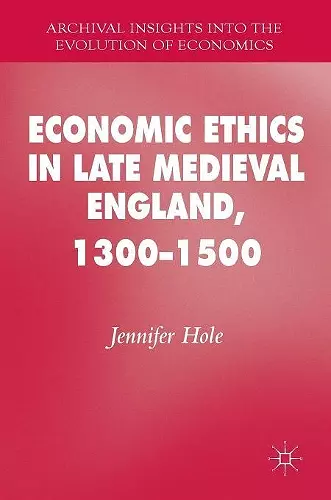Economic Ethics in Late Medieval England, 1300–1500
Format:Hardback
Publisher:Springer International Publishing AG
Published:20th Oct '16
Currently unavailable, and unfortunately no date known when it will be back

Drawing on an array of archival evidence from court records to the poems of Chaucer, this work explores how medieval thinkers understood economic activity, how their ideas were transmitted and the extent to which they were accepted. Moving beyond the impersonal operations of an economy to its ethical dimension, Hole’s socio-cultural study considers not only the ideas and beliefs of theologians and philosophers, but how these influenced assumptions and preoccupations about material concerns in late medieval English society. Beginning with late medieval English writings on economic ethics and its origins, the author illuminates a society which, although strictly hierarchical and unequal, nevertheless fostered expectations that all its members should avoid greed and excess consumption. Throughout, Hole aims to show that economic ethics had a broader application than trade and usury in late medieval England.
“Hole’s study is ambitious, with chapters on the origins and doctrines of economic ethics, the translation of these ideas into the life of the laity, economic ethics in great literary works of the period, economic law (including case studies of economic injustice), the ethical and unethical actions of landowners, and the understanding of economic ethics among individuals as gleaned from their personal correspondence. … This is a fine contribution to the history of economic thought.” (Journal of Markets & Morality, Vol. 20 (2), 2017)
ISBN: 9783319388595
Dimensions: unknown
Weight: 5056g
300 pages
1st ed. 2016